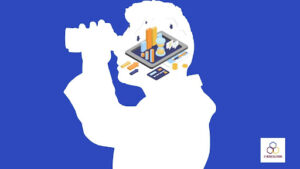3 Reasons Why Your Business Needs Social Analytics

Despite its complexity, social analytics is an important tool that can provide businesses with invaluable information for their marketing strategy. In this blog, we’ll outline three reasons why you need to use social analytics: 1) Understanding your target market; 2) Gaining deeper knowledge of the competitive landscape; 3) Finding insights from consumer reactions to products and services.
There is no doubt that social media data can be complex or even chaotic. With new social media platforms coming out every day and the fact that social content comes in many forms such as text, images, GIFs, and videos can make finding nuggets of information extremely difficult. However, analytics can provide a system where data is collected, aggregated, and parsed which helps uncover relevant patterns that allow for a much richer understanding of a brands’ community. Let’s dive into how social analytics can help with these three pain points.

- Understanding Your Target Market
Analysis of social media trends gives businesses insight into what their customers are talking about and sharing online. With people spending more time online, seeing what content your target segment is consuming can reveal tremendous opportunities to connect with them and understand their interests and behavior. In addition, analytics can uncover how the topic is being talked about such as the use of unique phrases, words, hashtags, jargon, internet slang, abbreviations, emojis, and the general sentiment around the topic.
Is your target audience dying for merchandise from a new show? Or are they talking about that show so much because they hate it? Knowing if a community is invested in a specific topic related to your brand as well as the lingo used by this group can give a business the ability to meet their target market where they are and even understand the culture and nuances of a particular group of people. For example, a marketing campaign with 90s music could really touch the hearts of millennials, but a miss if your target audience is Gen Z. These types of insights help shape a brand’s strategy, inform content messaging, and the marketing tactics used to reach the desired target group.

- Gaining Deeper Knowledge of the Competition
Understanding what other brands have done gives businesses a better chance at making the correct decisions for their own brands. Knowing what the competition is doing digitally to reach their audience, market their product, or tell their brand story gives businesses real-life case studies that are extremely relevant to their own strategies. Analytics can not only uncover what marketing/branding content has or hasn’t worked for other companies, but also why they were or were not successful. Learning from others’ successes and failures allows for better use of resources and increases the chances of success whether it is a higher return on ad spend or more effective brand awareness campaigns and even positive sentiment.
Lastly, the ability to quantify the brand conversations helps a brand gauge its share of voice among a defined competitive set. Audience metrics can reveal useful benchmarking data for a brands’ follower growth strategy. Also, data around engagement, reach, impressions and other KPIs are tremendously helpful to see how a business stacks up against its primary competitors and should be used for monitoring the growth and changing influence of brands over time.

- Insights From Consumer Reactions
Social media gives brands direct access to customers and their reactions to a product or service. This aspect of social analytics is more qualitative but through text analytics and artificial intelligence can be quantified. This type of data is extremely powerful, as it is essentially feedback in real-time. Unearthing details of bad customer experiences can help businesses see weaknesses in their products/services or competitors and quickly respond. Being able to react and resolve issues not only prevents further harm to the brand image but also builds customer loyalty for brands that take the extra steps to address its problems. Having constant access to consumer reactions is also beneficial when the feedback is positive. Brands can easily see what customers enjoy about their products, which informs their marketing and future product development. Utilizing social listening and analytics combined is immensely valuable and provides opportunities to learn from the customer to improve their experience.
In the ever-changing landscape of social media, a successful analytics system will provide accurate and up-to-date information on a target audience, competitors, and the strengths and weaknesses of a business from the consumer’s perspective. It is a necessary tool that can help businesses cut through the noise and find actionable insights that improve its brand or even its core product or service.
Partnering With B3
Our team loves staying on top of what’s happening on social. That is why some of the top Fortune 500 brands trust us to provide them with relevant recommendations, social listening & monitoring reports, community management, and unified metrics reports.
Through the use of a number of social tools and our robust social media audit, we take a deep dive into a brands’ presence as well as their competitors to understand what’s working and what’s not. We are always mindful of new trends and relevant platform features which helps us identify any opportunities they’re missing out on. Learn More about receiving a free Social Media Consultation from the team at B3 Media Solutions.


![Read more about the article How To Choose The Right Social Listening Tool [Checklist Included]](https://www.b3mediasolutions.com/wp-content/uploads/2022/06/B3-768x402.png)
